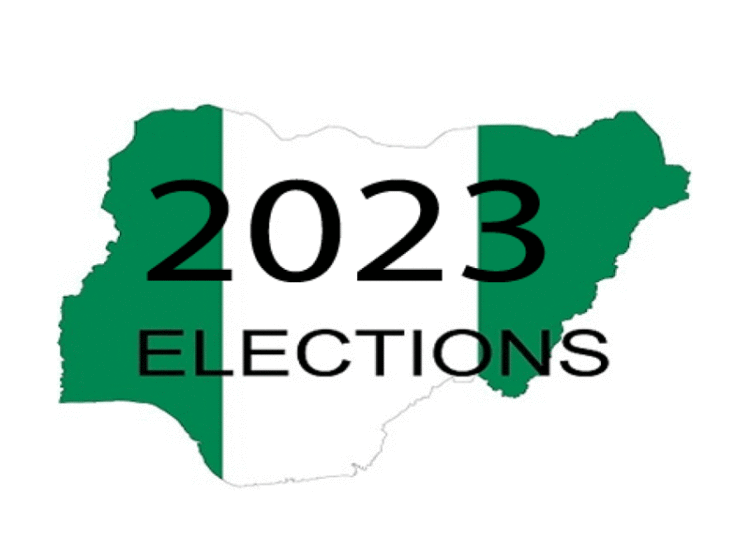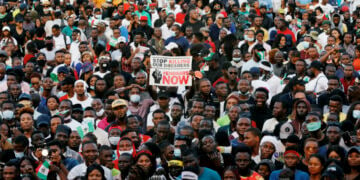For politicians in Nigeria, this is the season to be. Not for service as would be expected from other climes but for self-glorification, back stabbing and horse-trading. Curiously, it wears the tag: Democracy. Most Nigerians, for good reasons, believe that what is going on in the country at the moment is a parody of that most profound system of government that has worked excellently well elsewhere.
Nigerians have coined a phrase for it: transactional politics which has unfortunately formed a component of what ought to have been a national call to service. It is a revelation of the undue influence of money and next-of-kin. For the candidates, the only qualification that makes sense is the presence of a heavy war chest and the willingness to throw it around in vulgar display of fame and fortune.
It is no surprise then, that, it is the most talked about issue in the public space at the moment. It is all about 2023 – who becomes a Governor, a legislator at both the National and State levels. Most importantly, on that date, May29, to be precise, the office of the President, ceteris paribus, will become vacant. Which means a new occupant will be needed to feel the vacuum so created by his exit as demanded by the constitution after serving for the mandatory eight years of two terms.
So, one can begin to understand the hustling and bustling, the stirring debates and above all, the scheming over who will be the lucky person. It has been a posturing scenario by the six geopolitical zones as they hanker over which one of them deserves the diadem. As these activities gather steam, by an act of omission or commission, a big chunk of the population seems to be onlookers in a game they should be big players.
The South east geopolitical zone, from all indications, appear to have been schemed out of the national political arrangement though not of their own making. But as a result of an all pervasive ill-will emanating from a deliberate gang-up by the rest of the country. A move intended to politically emasculate the once vibrant enclave of political activism. And that in spite of the best efforts of the zone and its politically-exposed actors.
It is pertinent to observe that when the scene was set for political activities to commence, even the worst cynics argued in favour of a president of Igbo extraction. The catch phrase was that equity, justice and good conscience demanded it. There were calls for the zoning of the presidential slot across the political spectrum to the South east. Or at least among the two dominant political parties- Peoples Democratic Party (PDP) and the All-Progressives Congress (APC). It seemed the right thing to do, in our view, if the people of the zone would have a sense of belonging having been bi-passed in the last 22 years of the re-institution of constitutional democracy. At a time, it appeared that it could, by some miracle, happen.
Sadly, in our view, the process is ending with the ongoing Convention of the APC. Media reports of the thinking on the corridors of the ruling party point to the disturbing fact that the South east is, once again, been left in the lurch, abandoned and made to eat the humble pie. The PDP had a zoning principle that would have favoured the South east. But along the line, the policy was jettisoned and its inspiring candidates were either muscled out or pressured by conspiratorial tendencies to play a second fiddle and that meant the zone has to wait for another four years or even more. At the peak of the debate, it was argued that an Igbo president could be the answer to the separatist activities in the zone. That fell on deaf ears and further hardened the position of forces insistent on leaving the South east out of the political equation.
We note that in a last-ditch appeal to the President, the candidates from the zone on the platform of the ruling party, in an emotion-laden memo, attempted to persuade him to apply the weight of his office to sway the party in the direction of settling for a candidate from the zone. Instead of an empathetic assessment, it was perceived as a move too little, too late.
However, in our opinion, that appeal is a demonstration of the frustration the zone feels as it watches with shocked dismay as the slot inexorably slips through its fingers as was the case in 1999 with the late Dr Alex Ekwueme.
Our concern as a newspaper is the implication of the sidelining of the zone in the political scheme of things. The South east, in its latest outing proved, if ever there was need, that it has the material that meets the standard expected of the office of the president. All they asked for was an understanding from their compatriots from other zones. That was inelegantly denied by zones that had served eight years or more and still harbour a feeling of entitlement. From what has so far transpired in the political environment, it is obvious that the South east is confronted, undeservedly, by a challenge of ill-will.





